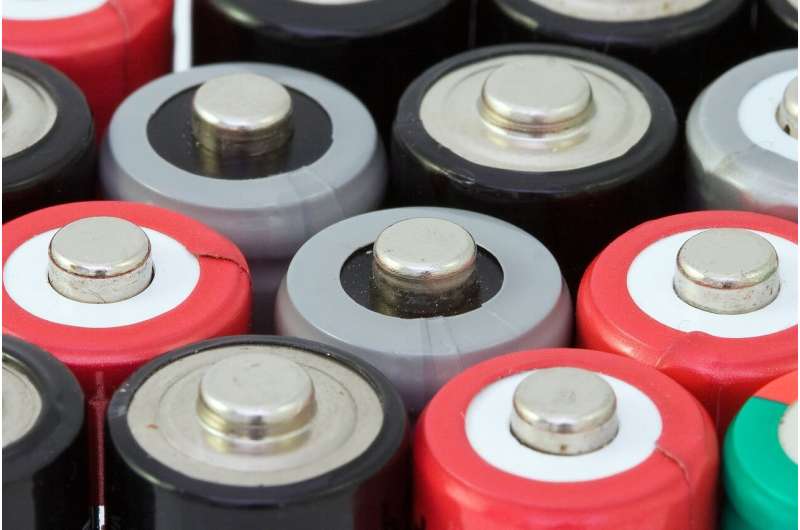This article has been reviewed according to Science X's editorial process and policies. Editors have highlighted the following attributes while ensuring the content's credibility:
fact-checked
peer-reviewed publication
proofread
Eco-friendly solution for battery waste: New study unveils novel metal extraction technique

A new study led by researchers in Canada introduces a novel process for the extraction and separation of metals from spent alkaline batteries, offering a promising solution for efficient recycling of critical materials.
As global energy demands continue to rise, the role of batteries is becoming increasingly critical. However, the improper disposal of spent batteries poses significant environmental hazards due to their metal content. Recycling these metals not only mitigates environmental risks but also provides a sustainable source of valuable materials.
The paper, published in the Journal of Chemical Technology and Biotechnology, presents a technique for the extraction of potassium, zinc and manganese that is cheaper and more energy efficient than other existing methods.
Noelia Muñoz García, a Researcher at the Université de Sherbrooke in Canada, and lead author of the study, explained the significance of the research. García said, "We focused on the extraction of the main minerals present in alkaline batteries because they represent more than 70% of the volume of spent batteries in North America.
"This research supports the principles of the circular economy, where materials are reused and recycled, creating a closed-loop system. This reduces waste and can lead to long-term economic sustainability by maximizing the utility of resources, which is one of the main objectives in current treaties such as the Paris Agreement."
Importantly, efficient recycling of battery materials is critical to mitigating harmful environmental impacts. "The main problem of improper disposal of spent alkaline batteries is that compounds of potassium, zinc and manganese can leach into the soil and pollute groundwater, posing threats to the environment and human health, such as ecotoxicity and abiotic depletion," noted García.
The technique hinges on a process called hydrometallurgy, which uses aqueous solutions to extract the metals—known as "leaching." Hydrometallurgy can be carried out at room temperature, making it more energy-efficient than methods that require high temperatures.
The novelty of the process developed in this study lies in the use of three separate steps for the extraction of the metals. In other hydrometallurgical processes, all metals can be extracted in one leaching step producing a complex leachate composition that is costly to separate out into its components.
By removing the metals in three phases using different leaching agents, the researchers were able to produce higher quality leachates, lowering the costs of downstream purification. Overall, the process resulted in a total extraction efficiency of 99.6% for zinc and 86.1% for manganese.
Antonio Avalos Ramirez, a Researcher at the Université de Sherbrooke in Canada and corresponding author of the study commented on these high extraction efficiencies. He said, "The most important factor was to find a suitable leaching agent (in this case sulfuric acid) and a reducing agent (hydrogen peroxide), which increased the extraction of these minerals."
The researchers are now looking ahead to scaling up their extraction technique. Ramirez noted, "The next steps will be to develop separation and purification units for obtaining zinc and manganese at a quality good enough to introduce them to the market and use them in the production of new goods. Further research is needed to address the scalability of the process at an industrial/commercial scale."
More information: Noelia Muñoz García et al, Extraction and separation of potassium, zinc and manganese issued from spent alkaline batteries by a three‐unit hydrometallurgical process, Journal of Chemical Technology & Biotechnology (2024). DOI: 10.1002/jctb.7649
Journal information: Journal of Chemical Technology and Biotechnology
Provided by Society of Chemical Industry




















